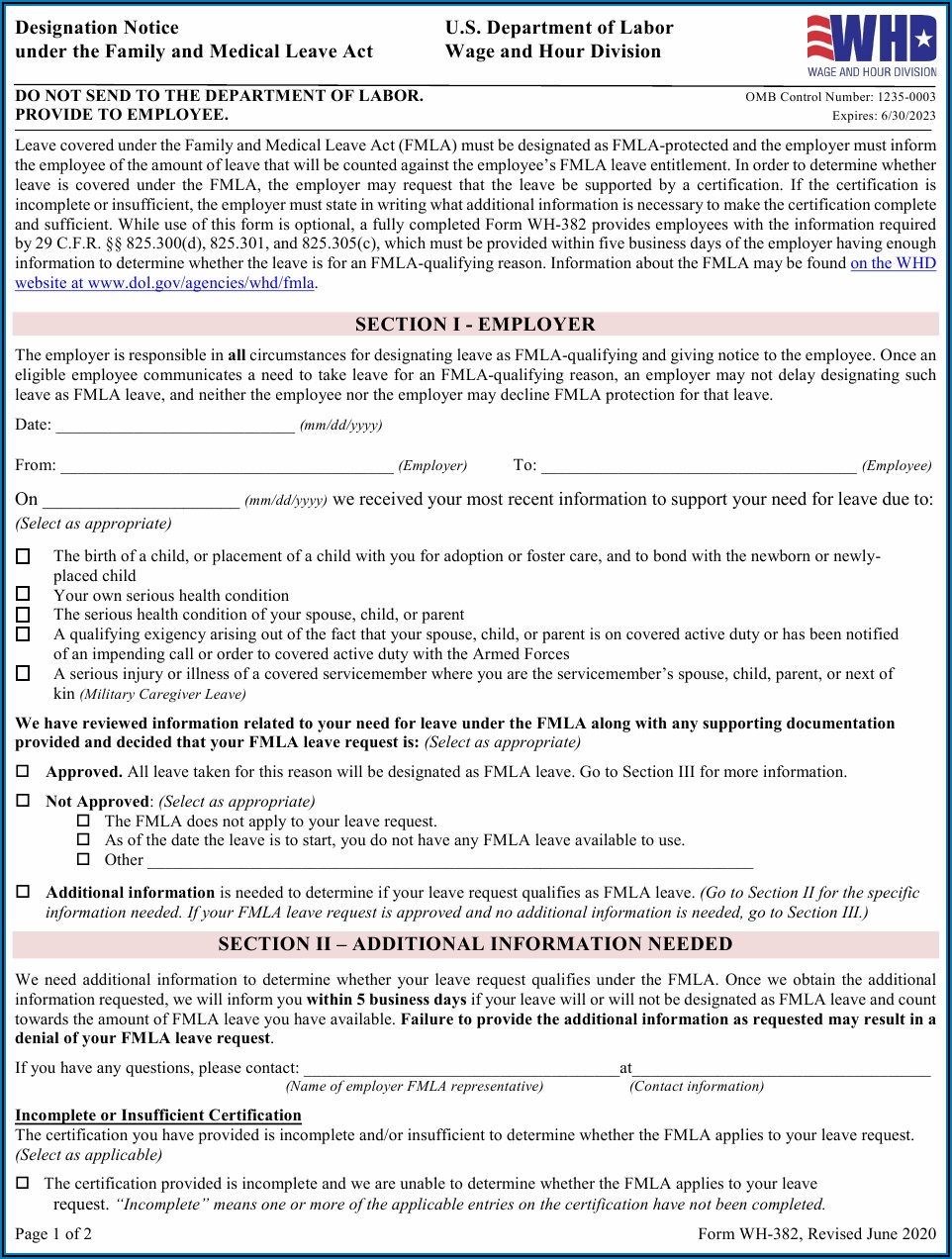FMLA Paperwork Submission: How Long Should It Take?

When dealing with the Family and Medical Leave Act (FMLA), understanding the timeline for paperwork submission is crucial. FMLA provides eligible employees up to 12 weeks of unpaid, job-protected leave per year for certain family and medical reasons. However, the process of submitting the necessary paperwork can be a source of stress and confusion for many. In this blog post, we will delve into the specifics of FMLA paperwork, how long it typically takes to process, and what employees and employers can do to streamline this process.
The Basics of FMLA Paperwork

Before discussing the time frame, let’s briefly cover the essentials of FMLA paperwork:
- FMLA Eligibility Form: An employee submits this to their employer to request leave.
- Medical Certification: A healthcare provider completes this to verify the need for leave.
- Employer Response: Employers provide a response approving or denying the request.
Standard Processing Timeline

The FMLA specifies the following timeline for processing:
- 30 Days Notice: Employees are generally required to provide 30 days advance notice for foreseeable leave (e.g., a planned surgery). If this isn’t possible, notice must be given as soon as practicable.
- 5 Business Days: Employers have 5 business days to inform the employee of their FMLA rights and responsibilities once they receive the notice.
- 15 Days: Employees must provide the required medical certification within 15 calendar days of being notified by the employer, unless it’s not practicable.
- Designation Notice: Within 5 business days after receiving sufficient information from the employee or their healthcare provider, employers must provide a designation notice stating whether the leave qualifies for FMLA.
🏫 Note: These deadlines are set to ensure a fair and timely process, protecting both the employee's rights and the employer's ability to plan for staffing needs.
Factors Affecting Processing Time

Here are several variables that can influence how long it takes to submit and process FMLA paperwork:
- Employee Preparedness: If an employee anticipates the need for leave and prepares the necessary documentation in advance, it can significantly reduce the time required.
- Employer Efficiency: The internal procedures at an employer’s HR department play a critical role. Efficient systems, clear communication, and quick turnaround in processing paperwork can expedite the process.
- Healthcare Provider Delays: Sometimes, obtaining medical certification can be delayed due to the healthcare provider’s workload or difficulty in scheduling appointments.
- Completeness of Documentation: Incomplete paperwork can result in back-and-forth communications, which extends the processing time.
Steps to Speed Up the FMLA Submission Process

Both employees and employers can take several steps to accelerate the paperwork process:
- For Employees:
- Request the necessary forms from HR in advance.
- Schedule medical appointments early to ensure timely certification.
- Fill out forms completely and accurately, providing all required information.
- For Employers:
- Develop an FMLA policy that clearly outlines the steps for both the employee and HR.
- Ensure HR staff are trained on FMLA regulations and processing procedures.
- Use technology to manage and track FMLA requests, reducing paperwork and improving speed.
💡 Note: Clear communication and preparedness can significantly reduce the time for FMLA processing, benefiting both parties.
Real-Life Scenarios

Let’s examine a few common scenarios to understand how the timeline might play out in real-world situations:
Scenario 1: Planned Surgery

- Employee gives 30 days notice to employer.
- Employer responds within 5 business days with eligibility information.
- Employee obtains medical certification within 15 days.
- Employer issues the designation notice within 5 business days of receiving the certification.
- Total Time: Approximately 50 days from notice to designation.
Scenario 2: Unplanned Medical Emergency

- Employee notifies employer as soon as practicable.
- Employer responds immediately.
- Employee obtains medical certification ASAP, possibly within 2-3 days.
- Employer issues the designation notice once all paperwork is in order.
- Total Time: Can range from 7 to 14 days, depending on the urgency and completeness of paperwork.
Scenario 3: Incomplete Paperwork

- Employee submits incomplete FMLA request.
- Employer requests additional information.
- Employee takes time to provide the missing details, which might take a few days or weeks.
- Employer issues the designation notice upon receiving complete documentation.
- Total Time: Varies widely but can significantly exceed the standard processing time.
Final Thoughts

While the FMLA aims to ensure timely processing of leave requests, various factors can impact the actual time taken. Employees should strive to provide complete and timely documentation, and employers need to have efficient systems in place to handle such requests. By understanding the standard timelines, anticipating potential delays, and preparing accordingly, both parties can make the FMLA process as smooth as possible. This not only protects the rights of the employee but also aids the employer in planning for the employee’s absence, ensuring operational continuity.
What if my employer denies my FMLA request?

+
If your employer denies your FMLA request, you can ask for a reason for the denial. If you believe you meet the eligibility criteria, you might have the right to appeal the decision or file a complaint with the Department of Labor’s Wage and Hour Division.
Can my employer require a second medical opinion?

+
Yes, your employer can ask for a second medical opinion at their expense. If there’s a conflict between the first and second opinions, a third, binding opinion from a provider selected jointly by the employer and employee can be sought.
What if I can’t provide the medical certification on time?

+
Communicate with your employer as soon as you’re aware that you can’t meet the deadline. Employers are often willing to work with employees in such situations. However, failure to provide certification in a timely manner might lead to your leave being delayed or denied.